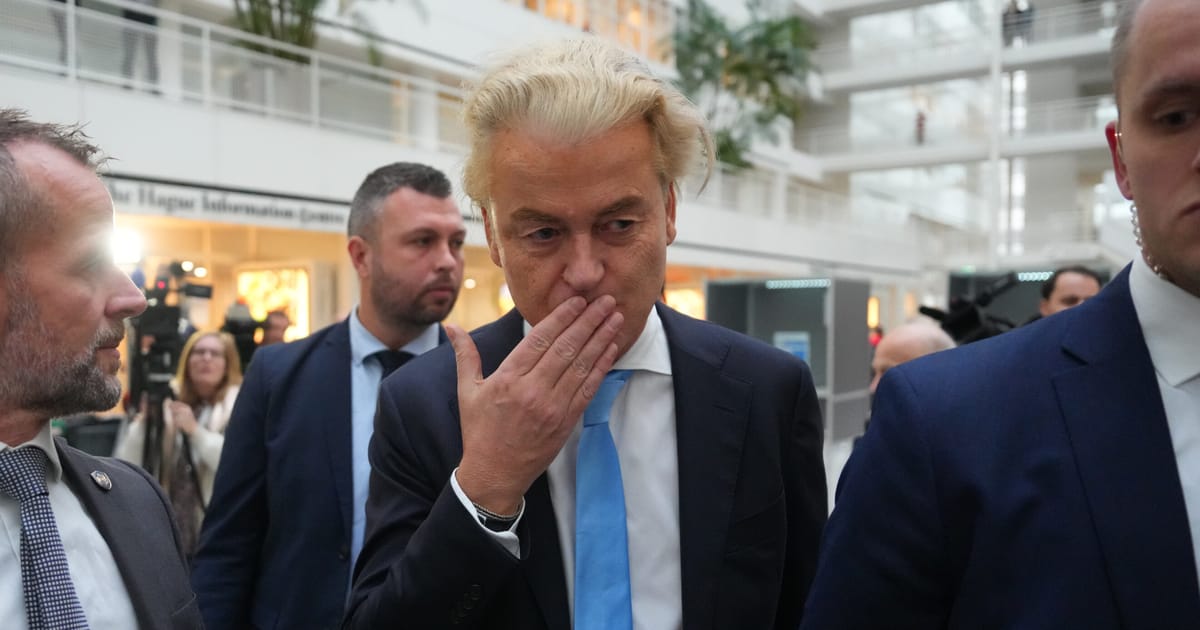The anti-Islam, euroskeptic radical Geert Wilders is projected to be the shock winner of the Dutch election.
In a dramatic result that will stun European politics, his Freedom Party (PVV) is set to win around 35 of the 150 seats in parliament — more than double the number it secured in the 2021 election, according to exit polls.
Frans Timmermans’ Labour-Green alliance is forecast to take second place, winning 25 seats — a big jump from its current 17. Dilan Yeşilgöz, outgoing premier Mark Rutte’s successor as head of the center-right VVD, suffered heavy losses and is on course to take 24 seats, 10 fewer than before, according to the updated exit poll by Ipsos for national broadcaster NOS.
A win for Wilders will put the Netherlands on track — potentially — for a dramatic shift in direction, after Rutte’s four consecutive centrist governments. The question now, though, is whether any other parties are willing to join Wilders to form a coalition. Despite emerging as the largest party, he will lack an overall majority in parliament.



Sure that’s in paper. But does he head the state? North Korea is also a democratic republic if you go by the official definition…
I’m from Belgium, which is also a kingdom, but our king has absolutely no power. The state is headed by the federal government, not by the king, in practice. I would imagine that to be the case in the Netherlands too.